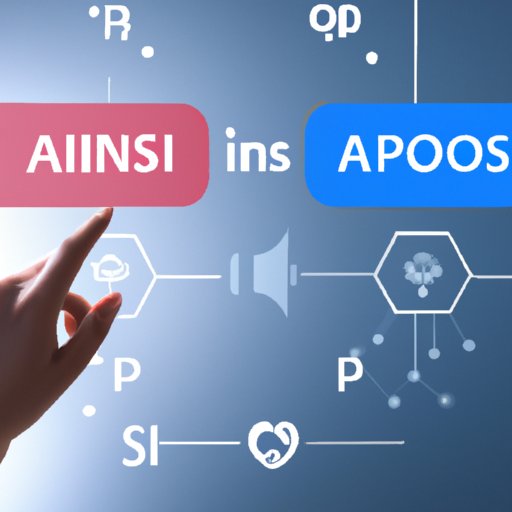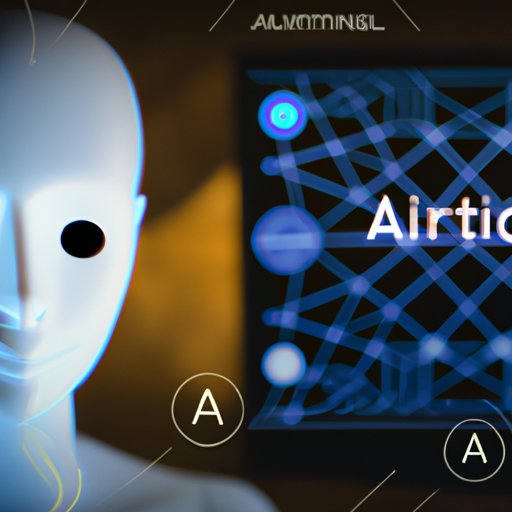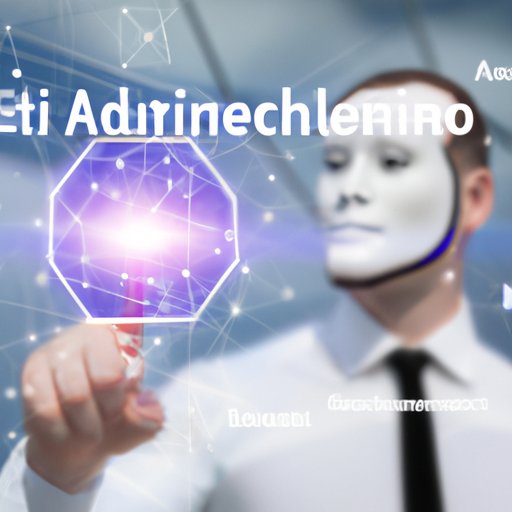Introduction
Artificial intelligence (AI) is a rapidly developing field of technology that has the potential to completely revolutionize our lives. AI involves the development of computer systems that are able to perform tasks that would normally require human intelligence, such as visual perception, speech recognition, decision-making, and language translation. As AI continues to develop, its potential implications for our society become more profound.

Examining the Pros and Cons of AI
The impact of AI on our society can be seen in many different areas, from economics to ethics. On the one hand, AI can offer numerous economic benefits, such as increased productivity and efficiency, as well as cost savings. According to a report by McKinsey Global Institute, “AI has the potential to generate up to $13 trillion of additional GDP in 2030, and create up to 95 million new jobs over the same period.” However, there is also the potential for job displacement, as AI systems are increasingly used to automate mundane tasks that were previously done by humans.
In addition, AI offers the potential for human enhancement, with technologies like exoskeletons and brain-computer interfaces offering the promise of improved physical and cognitive abilities. However, there is also the potential for misuse, with AI systems able to be used for surveillance, manipulation, and other forms of control.

Exploring the Ethical Implications of AI
As AI becomes more pervasive, it raises a number of ethical issues. For example, autonomy and privacy concerns are becoming increasingly important, as AI systems are able to collect and process vast amounts of data about individuals. There is also the potential for algorithms to be biased or discriminatory, given their reliance on data sets that may contain inherent biases. Finally, there is the question of accountability and responsibility – who is liable if something goes wrong with an AI system?
Investigating How AI Could Benefit Our Lives
Despite the potential for misuse, there are also numerous potential benefits to AI. For example, AI could be used to automate mundane tasks, freeing up time for people to pursue more creative and meaningful activities. AI could also be used to improve healthcare outcomes, with systems able to recognize patterns in medical data and make accurate diagnoses. Finally, AI could be used to increase efficiency and accuracy in a range of industries, from manufacturing to finance.

Examining the Potential Dangers of AI
Despite the potential benefits of AI, there are also potential dangers that must be considered. For example, there is the potential for misuse of data, with AI systems able to collect and process large amounts of personal information without proper oversight. In addition, there is the risk of unintended consequences, with AI systems potentially making decisions that have unforeseen effects. Finally, there is the risk of overreliance on technology, with people potentially relying too heavily on AI systems to make decisions.
Conclusion
In conclusion, AI has the potential to revolutionize our lives, both in terms of economic benefits and improvements to quality of life. However, there are also risks associated with AI, such as misuse of data, discrimination and bias in algorithms, and overreliance on technology. It is therefore essential that we approach the development of AI with caution, ensuring that ethical considerations are taken into account, and that appropriate safeguards are in place to protect individuals and society as a whole.
(Note: Is this article not meeting your expectations? Do you have knowledge or insights to share? Unlock new opportunities and expand your reach by joining our authors team. Click Registration to join us and share your expertise with our readers.)
